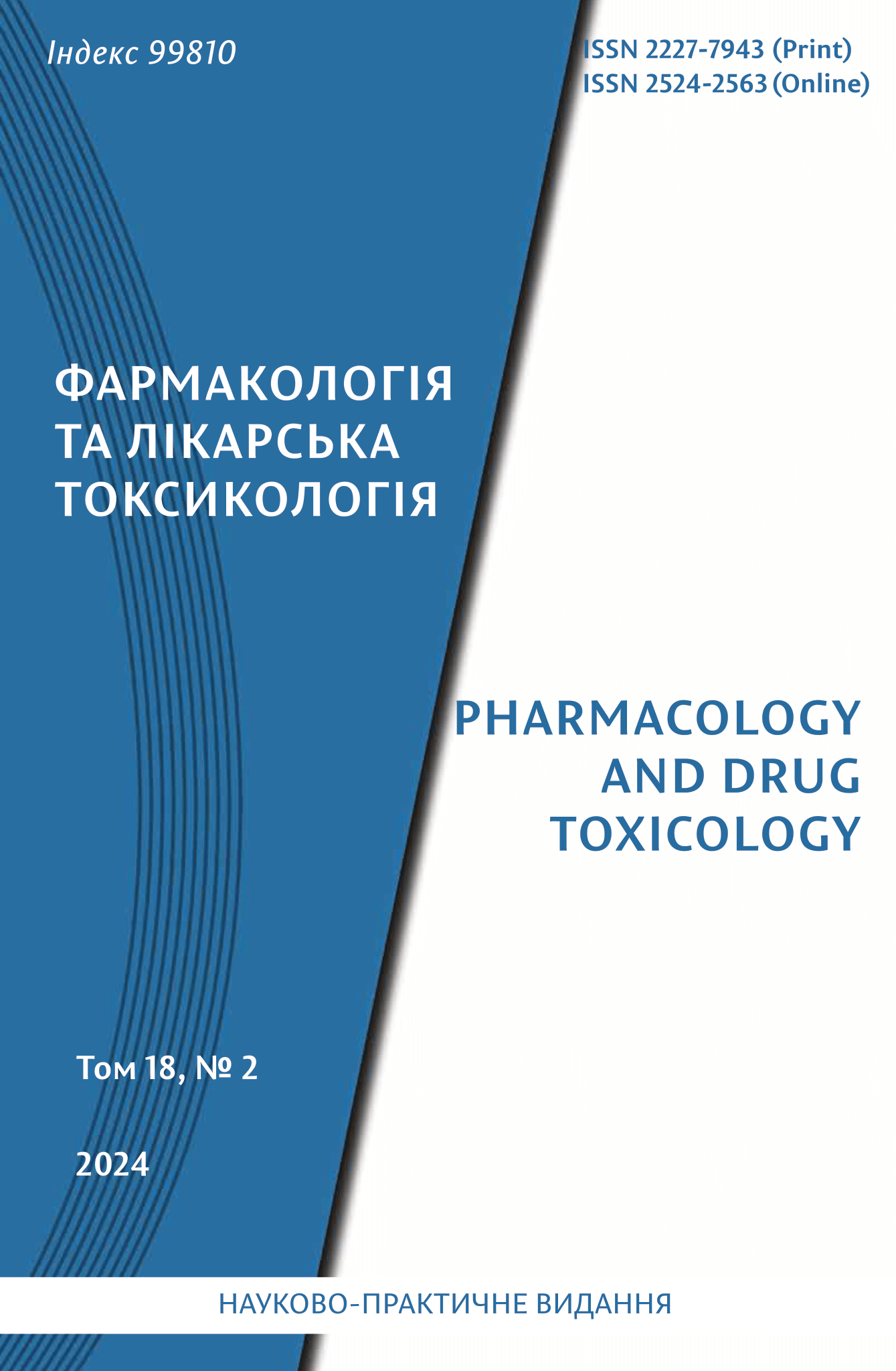Abstract
The aim of the study was to investigate the effect of a thick extract of Tribulus terrestris L. (TETT) on the state of oxidant-antioxidant balance in the tissues of the prostate gland under the conditions of chronic turpentine prostatitis in rats and to evaluate its prostatoprotective properties.
Experiments were conducted on 144 sexually mature outbred white male rats weighing 180–200 g. The thick extract of the threshed grass from the fruits TETT was obtained by extraction with 50% ethanol in the ratio of medicinal plant raw materials: extractant (1:10) followed by its evaporation and thickening. Chronic prostatitis in rats was induced by a single rectal injection of 1.0 ml of a mixture of turpentine and 10% dimexide in a ratio of 1:4. The animals were divided into 6 groups: 1 – intact; 2 – control pathology group 30 days after the introduction of turpentine; 3 – control pathology group 60 days after the introduction of turpentine; 4 – animals, that during the experiment from 30 to 60 days after the introduction of turpentine received TETT (150 mg/kg, daily, intragastrically); 5 – animals, that from 30 to 60 days after the introduction of turpentine received as a comparison drug Tribestan (Sopharma, Bulgaria) at a dose of 60 mg/kg, daily, intragastrically; 6 – animals, that during the treatment period received the phytoremedy Peponene (Teva, Hungary) in a dose of 106 mg/kg, daily, intragastrically. The prostatoprotective effect of phytoremedies was assessed by their influence on changes in prostate mass, daily diuresis, and peripheral blood parameters: erythrocytes, leukocytes, and platelets content, erythrocyte sedimentation rate (ESR), hemoglobin content, and C-reactive protein level. The balance of oxidative processes and antiradical protection in animals was evaluated by changes in the content of malondialdehyde, diene conjugates, activity of superoxide dismutase, catalase, glutathione reductase, the content of reduced glutathione, a-tocopherol, nitric oxide (NOx) in blood serum and the level of protein peroxide modification products – AFG and KFG. The state of androgen saturation of the body was assessed by changes in the activity of acid and alkaline phosphatase, fructose content in seminal vesicles and testosterone in blood serum.
It has been shown that in the model of chronic turpentine prostatitis in rats, TETT and comparison phytoremedies – Tribestan and Peponene reduce the severity of the inflammatory process in the tissues of the prostate gland with different effectiveness: they decrease the level of leukocytosis, ESR, the content of C-reactive protein in experimental animals, anemia, proteinuria and restore daily diuresis during the therapy period. TETT at a dose of 150 mg/kg and Tribestan at a dose of 60 mg/kg under their course 30-day use in the conditions of chronic prostatitis, reduce the excessive level of TBA-active products in the tissues of the prostate gland and blood serum of experimental animals, stabilize the activity of catalase, SOD, glutathione reductase, the content of reduced glutathione and a-tocopherol, reduce the content of NOx and the products of protein catabolism – AFG and KFG, as well as restore the disturbed indicators of the androgenic status of the body.
It has been shown, that in terms of antioxidant and prostatoprotective action under chronic turpentine prostatitis in rats, the herbal remedy TETT at a dose of 150 mg/kg is not inferior to its foreign analogue Tribestan at a dose of 60 mg/kg and is superior to the drug Peponen at a dose of 106 mg/kg.
